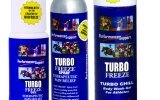- Magazine
- #readityourway
- Weekly Stories
- #shareyourstory
-
Adventure
- Abroad Travelling
- Africa Travelling
- Events
- Expos & Shows
- Festivals
- Fishing
- Free Diving
- Gliding
- Horse Riding
- Inspiring People
- Islands Travelling
- Kite/Windsurfing
- Motorbiking
- Motorised Water Sports
- Mountaineering
- Mountain Biking
- Off-road 4x4
- Off-road Motorbiking
- Paddling
- Performance Driving
- Photography
- Rock Climbing
- Rollerblading
- Sailing
- Scuba Diving
- Skateboarding
- Skydiving
- Snowboarding & Skiing
- Surfing
- Swimming
- Trail Running
- Wakeboarding
- Waveski Surfing
-
Sport
- Adventure Racing
- Fishing
- Free Diving
- Gliding
- Health & Fitness
- Horse Riding
- Inspiring People
- Kite/Windsurfing
- MMA
- Motorbiking
- Mountain Biking
- Multi-sport
- Off-road 4x4
- Off-road Motorbiking
- Paddling
- Performance Driving
- Photography
- Road Cycling
- Road Running
- Rock Climbing
- Rollerblading
- Sailing
- Scuba Diving
- Skateboarding
- Skydiving
- Snowboarding & Skiing
- Surfing
- Swimming
- Rugby
- Trail Running
- Triathlon
- Wakeboarding
- Waveski Surfing
- Lifestyle
- Calendar
Processed Foods
Words: Hannele Steyn
Topic:
Health & Fitness
Processed foods are things you should try to cut out from your diet, as there are only a few that have been fortified with extra vitamins and minerals that you can eat. For example, certain fruit juices and cereals, frozen vegetables, and milk are processed, but contain vitamins and minerals and are 'processed' to keep them from rotting.

Milk is pasteurized to kill bacteria and homogenized to keep fats from separating, so this form of processing is very necessary. Freezing can also help preserve the natural vitamins that sometimes get lost on the shelf.
Processed foods are, most of the time, full of refined sugar, preservatives, salt, and trans fats, and occasionally you will also find hormones and additives that have been added. These products go through a lot of chemical processes to prolong efficacy and keep them from spoiling before the expiry date, thus making life easier in today's time-starved society. As a result, we no longer need to devote huge amounts of time and energy to shopping everyday because we are able to keep food for longer and or buy ready-made foods.
Manufacturers also make it easier for mothers to pack school lunch boxes with all kinds of easy to eat and convenient ready-made foods, and this is one of the reasons why there are so many 'sick' kids with all kinds of allergies and intolerances, compared to way back when.
So let's take a look at these 'bad' ingredients in more detail to see why they are not good for us:
• Sodium is not a bad thing, but if we look at how much we consume when eating processed foods, it becomes an overload in our diets and can increase blood pressure, which may lead to health issues. So instead of eating things like ham, bacon, chips, cheese, and so on, rather eat cooked chicken, baked potatoes, and cottage cheese.
• Trans fats are oils that have been infused with hydrogen and they raise our bad cholesterol levels and lower the good ones. It causes weight gain and I think they are one of the biggest 'killers' of the nutrition world today. Trans fats (fats that don’t melt at room temperature) give taste to food and are very cheap, and are therefore very nice for manufacturers to use. A few examples of items to stay away from are roasted nuts, chocolates, and ready-made foods. Rather replace them with raw nuts, fresh fruit, and home-made meals.
• Colourants and preservatives are two of the most dangerous substances in processed foods. Studies in mice have shown colourants 1 and 2 (found in fizzy drinks), red 3 (found in tinned cherries, fruit cocktail mixes, and some sweets), green 3 (found in sweets and drinks), yellow 6 (found in drinks, sausages, gelatine, and baked foods, to name just a few) have all been linked to some kind of cancer.
Similarly, preservatives like BHA and BHT (most commonly used), along with MSG, which is used in cereals, chips, chewing gum, and vegetable oils, are also all linked to cancer causing compounds.
I urge you all to try and become more knowledgeable on what you are buying, and rather buy fresh or organic foods and prepare them yourself, flavouring your meals with fresh herbs instead of all the convenient MSG-packed spices. It will be well worth your effort!
Reference: Health Intelligence magazine, Sept/Oct 2012, by Tamzyn Campbell, B.ScMed (Hons)
Issue:
Issue 21 Jan '13
Contributor:
Hannele Steyn










